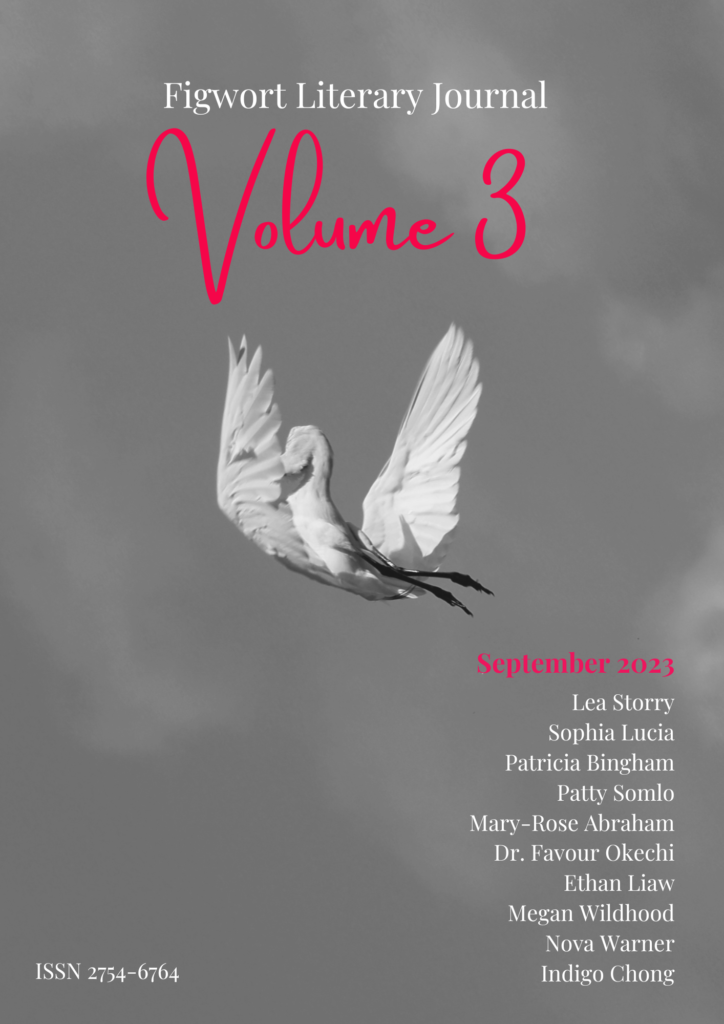No Mistaking the Loss
‘No Mistaking the Loss’ by Patty Somlo
You meet a guy on a blazing blue-sky day in San Francisco, of all places, where it’s more often foggy. You’ve been down this road countless times before. The first stop is attraction, like a shot of tequila, you think, though you’ve never touched the stuff.
Decades later, the road has taken you far. You’ve considered turning back at times, or even getting out of the car. Yet you kept on, even when the route was uncertain.
You look back. The view is open and wide. Not a breath of wind stirs the leaves and there’s not a single cloud in the sky. You wonder, since he is gone, where the road will take you now.
We don’t like to talk about death. The subject is unpleasant, best kept in a dark corner of the closet, with jeans you hope will one day fit again but probably won’t. Next to death, we shove serious illness, since it’s only a few degrees shy of that eternal darkness.
I used to dream repeatedly of walking across a bridge stretched low over a misty, murky river or lake. As I moved to the centre of the span, hands reached up from the water to grab me. I don’t recall if they ever succeeded in dragging me down. It’s not hard to wonder if that was death I kept managing to elude as a child.
When I was single, I didn’t know how it felt to be loved. In those days, I could drop in and out of people’s lives, and they in and out of mine. Of course, I suffered when a relationship I’d wanted to last ended. The tears were brief, before I started looking for a new diversion, and remain unscathed and free.
The love of my life happened late, when children were almost impossible, though I didn’t want children anyway. My husband Richard and I were complete, a family of two, which month after month, year after year, became more like one.
I knew that, and yet I didn’t. We were separate beings, different in so many particulars. He was the oldest of three boys. I was the youngest of three girls. Though we were only five years apart, Richard had come of age in a different era. He still loved what I called Fifties Food—meatloaf and mashed potatoes, chicken deeply fried, everything bad for the heart. I hated those dishes, even when I was young.
We seeped into each other’s beings in ways I’m not sure I can describe. Never the least bit practical, I gradually stocked up on Kleenex and toilet paper to make sure we would never, even after an earthquake, run out. Though Richard had a fear of flying, he nevertheless agreed to board planes again and again, to accompany me on vacations to British Columbia, Washington and Hawaii.
For almost three decades, I feared he would leave me. The first man in my life, my father, did just that, for long and short stretches of time. He was a career Air Force officer. When I think back to my early childhood, I picture him in his olive-green flight jacket, out on the flightline.
I have racked my brain without luck for hours trying to recall a time when my father and I had a conversation about me and my life. I haven’t been able to dredge up a single one.
You meet a man on a heartbreakingly beautiful day in San Francisco, the city you love. It’s a blind date. When you reminisce, you can’t quite believe you gambled like that, meeting a man you’d only spoken to once on the phone. You placed all your chips on his number and ended up winning the jackpot.
An afternoon that began with lunch on a deck overlooking San Francisco Bay, with a view of the Golden Gate Bridge, turned into a lifetime of shared meals. You started each day asking if he’d had any dreams, since his leaving you behind while he slept was one of the few times the two of you were apart. Later when he became ill, the first thing you wanted to know in the morning was how he felt.
I have read a long list of ways people act when they are grieving and must confess to nearly every one. As I did for decades, I sit on the bed and talk to Richard each morning, though I no longer expect a response. I don’t wish to make him feel guilty for dying, but I let him know how much I miss his living presence in my life. I imagine my tears each day cause him to well up too.
Not long ago, I didn’t know which was which. Widow or widower? Male or female? Who would I be if Richard died? I’ve now seen my name on official letters from financial institutions and the government, and somewhere in the correspondence I find my new label: widow.
For the longest time after Richard and I married, I couldn’t get used to the idea that I was someone’s wife. Neither did I completely believe I had a husband.
Every morning, I wake up and remind myself that Richard is gone. I don’t, though, tell myself I have become a widow.
You can’t remove a great love from your heart, even if that person has died. For days after his passing, I thought Richard might still be alive. The last year, he’d been cold much of the time, a side effect of his treatment. I worried about him at the funeral home, fearing he might be freezing. His wishes were to be cremated, and that, I learned, takes time, and even a government permit.
I picked up the death certificate and read it over several times. There was no mistaking the loss now. The words were there on a pale green and tan sheet, officially certified.
No one prepares you for death, neither your own nor that of a loved one. It’s astonishing really that for something so momentous, we are left to figure it out alone.
I was warned by the hospice nurse that I would be better off leaving the room when the two men from the funeral home carried my husband out of the house. She forgot, however, to advise me of something else. If I wanted to keep the clothes he had on, we needed to remove them and slip him into one of the gowns she kept for that purpose in her car.
A few weeks before Richard died, I ordered him a pair of cute flannel pyjamas online. He never wore the top, as I assumed he wouldn’t, but stayed snug in the bottoms the entire last week of his life.
The memory of my greatest love is seared in my mind: his legs bent, hands curled, eyes closed, as he sailed into the last moments of his life. Those pjs, crimson and turquoise on his far too thin legs, add a brightness to the picture I will keep with me for the rest of my life.
Lights in the funeral home were appropriately dimmed as the director led me through a bottomless stack of forms. I signed and initialled, here and here and there, as if instead of agreeing to the final treatment of my husband’s body, I was purchasing a new home.
When the last of the forms was signed and the director handed me my copies in a white embossed folder, I asked, ‘May I have the pyjamas back that my husband was wearing when he died?’
The director gave me a look that suggested I’d said something wrong.
‘We don’t normally do that,’ he crisply replied.
Fighting back tears, I explained how much those flannel pjs meant to me, because Richard had worn them in his last days.
The director stood up and said he’d see what he could do. I felt like a misbehaving child about to be carted off to the principal’s office and punished.
A few minutes later, the man walked back into the room. Without a word, he handed me a see-through plastic bag.
After Richard died, I told the other members of my caregiver support group that I was going to be one of those old ladies who every day has a long conversation with her dead spouse. I said this not in shame, but as a fact. When I ponder what I miss most about my husband, I find it’s our wonderful talks, which grew more meaningful the closer he was to death.
Richard wanted to live. For four and a half years, through treatments that made his bones ache, robbed him of his appetite, messed with his digestion, stripped him of hair, and eventually numbed his hands and feet and stole his ability to hear, my husband hoped his life would go on, exactly as he’d assumed before the stage four cancer. Even when the treatment failed, he held on to the hope that like a practiced magician, his oncologist would pull another trick out of her hat to save him. As any person would, Richard feared what might happen when he died, both for himself and me. I tried assuring him that everything would be all right, sharing my belief that after death, he would float into a place where pain was no longer welcome.
I feared what might happen when Richard reached the end of the road.
From the moment we met, I loved his easy ability to change. Year after year, he remained open to new ideas, thoughts and plans. He would always hear me out when I suggested a better way. Being his caregiver for four and a half years, thrust into the untenable roles of doctor, nurse, dietician, therapist and friend, I advised him on everything from what to eat to which questions to ask his oncologist. And he trusted me.
I tried to prepare him for what was coming next.
I shake my head, realising how unnecessary my efforts turned out to be. As Richard’s pain increased, and his energy and strength diminished, he didn’t need me to tell him where he was headed. In the end, he didn’t mind.
A life well-lived, I learned from my beloved husband, can bring about a good death. I grieve the loss of too much to say. But the sorrow is tempered by relief. Richard and I did not waste a moment of the beautiful life we shared. And that life was made more precious with the days we spent together preparing for its end.
Patty Somlo’s most recent book, Hairway to Heaven Stories, was published by Cherry Castle Publishing, a Black-owned press committed to literary activism. Hairway was a Finalist in the American Fiction Awards and Best Book Awards. Two of Somlo’s previous books, The First to Disappear (Spuyten Duyvil) and Even When Trapped Behind Clouds: A Memoir of Quiet Grace (WiDo Publishing), were Finalists in several book contests. Her work has appeared in Guernica, Gravel, Sheepshead Review, Under the Sun, the Los Angeles Review, and The Nassau Review, among others, and in over 30 anthologies. She received Honourable Mention for Fiction in the Women’s National Book Association Contest, was a Finalist in the Parks and Points Essay Contest and in the J.F. Powers Short Fiction Contest, had an essay selected as Notable for Best American Essays, and has been nominated for the Pushcart Prize multiple times, as well as to Best of the Net.



